
With the abundance of juices on supermarket shelves, it’s a wonder anyone can distinguish 100 percent fruit juice from a fruit drink. While fruit drinks contain some juice and have the same sweet taste as 100 percent fruit juice, the ingredients and taste are not the same.
100 Percent Juice
Read the label before you buy any juice. If a beverage is made from 100 percent fruit juice, it will say so on the label. If it does not, it is a fruit drink. And, don’t let advertising jargon trip you up. Juice bottles labeled juice drink, cocktail, beverage, punch or -ade, are not 100 percent fruit juice, notes American Academy of Pediatrics Committee on Nutrition.
Read the Label
Aside from stating whether a beverage is 100 percent fruit juice, the label can be a wealth of information when it comes to figuring out which beverage is which. If the ingredient list on the label is lengthy, its probably a fruit drink. Ingredients are listed on the label in descending order by weight. If water is listed as the first ingredient on the list, followed by high-fructose corn syrup and a series of extracts, acids and sweeteners, the juice drink is not 100 percent.
Sugars
While 100 percent fruit juice contains only the natural sugars from the fruit, fruit drinks may contain high-fructose corn syrup -- a high-calorie, heavy syrup made from cornstarch. High-fructose corn syrup tastes similar to table sugar and costs less, which accounts for its appeal in the processed food industry. Because some fruit drinks contain as little as 30 percent real fruit juice, artificial sweeteners and flavorings are added along with the high-fructose corn syrup to enhance the taste of the beverage.
Raw Juice
While most of the 100 percent fruit juices at the supermarket are pasteurized -- exposed to high heat to destroy bacteria -- unpasteurized 100 percent fruit juice is also available. According to the U.S. Food and Drug Administration, unpasteurized natural fruit juices may contain bacteria, which can lead to food-borne illnesses. The same is true for raw juices sold in farmer’s markets and roadside stands. If you are unsure whether a juice is pasteurized, the FDA suggests you boil it before drinking.
Related Articles

Where to Buy Pomegranate Juice

How to Keep Cucumber Juice Fresh
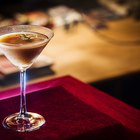
Chocolate Martini: How Many Calories?
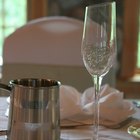
How Much Is a Single Serving Size of a ...

Can Beet Juice Sit Out Overnight?
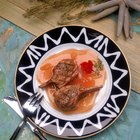
How to Make a Fruit Reduction

Difference Between Percent Alcohol & ...

How to Make Carob Juice
What Is the Difference Between 80 & 100 ...
Calories in Charles Shaw Wine

What Is Agave Cactus Juice?

How to Tell When Orange Juice Has ...
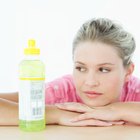
Gluten-Free Energy Drinks

Alcohol in Fermented Miso Paste
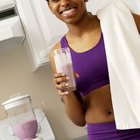
How to Make a Soy Protein Shake
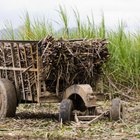
What Liquors Are Made From Sugar Cane?

Is No Sugar Added Cranberry Juice Good ...
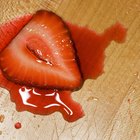
How to Extract Fructose From Plants

What Juices Are Good for Healing Acne ...
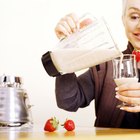
How to Store Smoothies in the Fridge
References
- American Academy of Pediatrics: The Use and Misuse of Fruit Juice in Pediatrics
- U.S. Department of Agriculture: The Food Guide Pyramid
- Toronto Public Health: Fruit Juice or Fruit Drink -- What’s The Difference?
- U.S. Food and Drug Administration: Safe Eats - Fruits, Veggies & Juices
- Michigan State University Extension: Is Your Fruit Juice Really 100 Percent Fruit Juice?
Writer Bio
Jonae Fredericks started writing in 2007. She also has a background as a licensed cosmetologist and certified skin-care specialist. Jonae Fredericks is a certified paraeducator, presently working in the public education system.
Photo Credits
George Doyle/Stockbyte/Getty Images